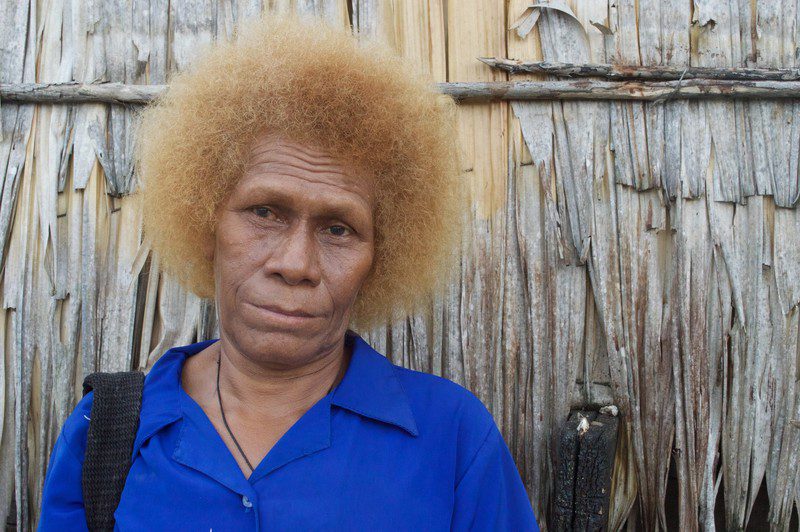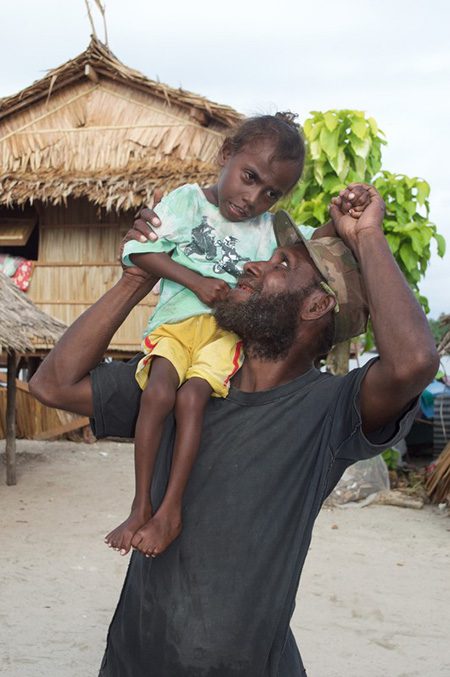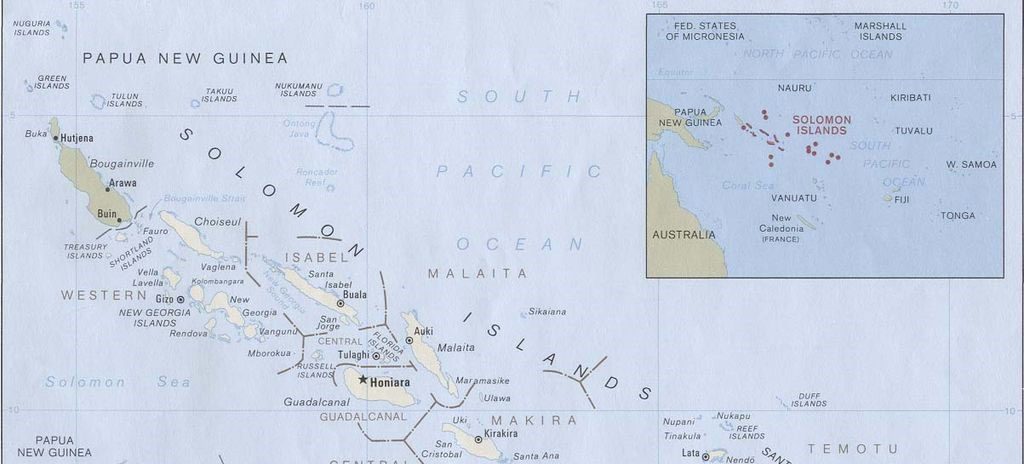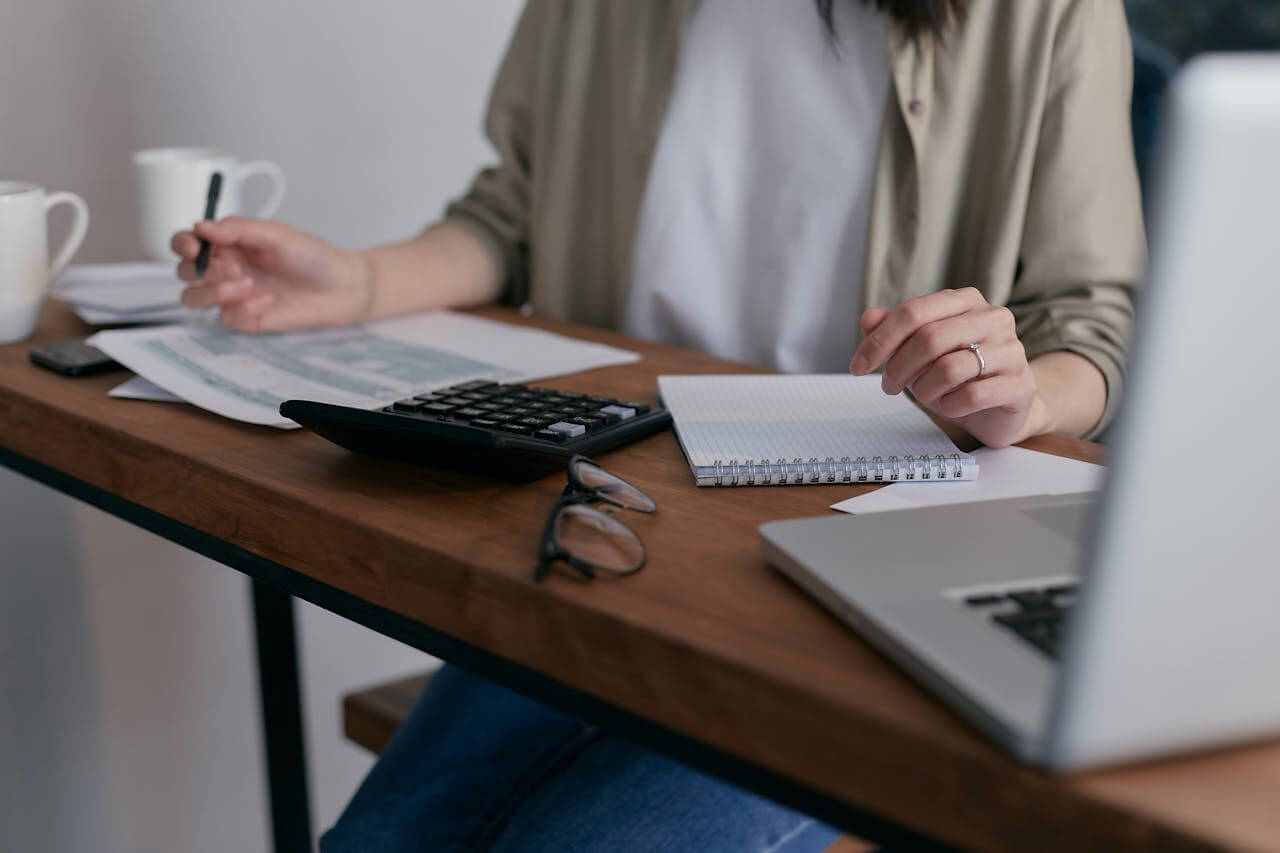Oxfam Safe Families research on transforming harmful gender norms
Tanushree Soni (Oxfam), Tomoko Honda (Monash University), Sarah Homan (The Equality Institute), and Loksee Leung (The Equality Institute)
The Solomon Islands consists of over 900 tropical islands and atolls, spread across 28,400 square kilometres of the South Pacific. The country has a rich and complex political and cultural history. While diverse, Solomon Island cultures are predominantly patriarchal, with the Church along with kastom (traditional beliefs and practices) playing a key role in shaping local norms, attitudes, and behaviours. Traditionally, women are expected to be nurturing in their social roles, and are generally socialised to be domestic, respectful, and passive.
The Solomon Islands’ stunning natural beauty and laid-back way of life appear in stark contrast to some of the pervasive social challenges facing the tiny island nation. The country has one of the highest rates of violence against women in the Pacific region, with two out of three women aged 15-45 years having experienced intimate partner violence and over a third of young women aged 14-29 reporting that their first sexual encounter was forced.

Let’s Make our Families Safe – Safe Families
Enter the ‘Let’s Make our Families Safe’ (Safe Families) Program, an Australian aid initiative implemented by Oxfam on behalf of the Australian Government. This innovative, long-term community-mobilisation program is helping to ignite social change, actively engaging community members to understand the root causes of family and sexual violence and take action to address this problem. The program includes a variety of activities, including the establishment of community-based Family Violence Prevention Action Committees and the development of community-led action plans to prevent and respond to family violence.
Researching mechanisms of change – how Safe Families is making a difference?
With funding from SVRI through the SVRI WBG Development Marketplace Award 2017, Oxfam, The Equality Institute (EQI), and Monash University jointly designed and implemented research to investigate how Safe Families is shifting harmful gender norms and preventing family violence and intimate partner violence. The research will also examine factors which help or hinder the implementation of the program.
Why is this research important?
Research of this kind is critical. Despite having some of the highest rates of violence against women globally, currently there very little evidence in the Pacific on the effectiveness of interventions aimed at stopping violence against women before it starts. Building on early indications, which suggest that Safe Families’ strategies can be effective, this research will dive deeper into the specific elements of the intervention itself, examining whether and how sustained, collaborative approaches with local leaders and communities can shift harmful social norms related to gender inequality. This research will also contribute to the existing evidence around ‘what works’ to end violence against women and girls (VAWG). We hope this will influence broader violence-prevention activities in the Pacific region, and ultimately create lasting change.
Involving and empowering communities
Our research approach actively involved local participants and researchers. In May 2018, the team travelled to the Solomon Islands, where they recruited and trained ten local researchers in gender equality, the root causes of family violence, and research techniques. The local researchers played a key role in refining and adapting the research tools to the local context and translating the tools into Pijin. The research team then travelled to the offshore islands of Malaita and Temotu – where Safe Families was being implemented – and conducted interviews and focus group discussions with community members and program staff. In total, we collected over 70 hours of interview audio recording for analysis. The initial findings have been positive, indicating significant inroads to social transformation, on personal and community levels. One man, an Oxfam trained community engagement facilitator commented:
“When I joined this Safe Families program… I started to see [beneficial] changes gradually happening in my personal life… I changed my negative attitudes [related to harmful gender norms] and started to accept these changes. The more I got involved, the effects of my changing life also affected the people around me, which really helped to show other people that this is the kind of life we should live with one another in our communities. I realize that this is the course of life central to the purpose of the program.”

What are we finding?
With the audio recordings translated and transcribed, the EQI and Monash University are now undertaking data analysis. Preliminary findings affirm that VAWG is driven by pervasive gender norms, such as the normalisation of violence and expectations that men have a right to control women. Interestingly, the research uncovered more complex and nuanced themes. For example, the concept of ‘bride price’, though not a driver of violence, is central to understanding the circumstances in which violence is justified. It is intricately tied to several other issues, such as what makes an ‘honourable’ woman or the specific conditions in which it is acceptable for a woman to leave a violent relationship. There are also early indications of some positive changes in knowledge and attitudes. VAWG has traditionally been considered a private issue, however, on encouraging community conversations about it, one woman in Malaita said that many now have an increased awareness.
“Yes of course, [talking] is a good thing, we need to know about it because before we were just ‘blind’ and didn’t know about anything. So, it’s good, and if some of the families don’t hear about it, we will tell them, ‘well this is what we learned in the session. Yes, it’s a good thing.”
What’s next?
The team at Monash University and the Equality Institute are still finalising their findings and exploring what these may mean for future programming in Safe Families. In the Solomon Islands, the program itself has entered a second phase of programming, up-scaling the work and will integrate the learnings from the study. The team is looking forward to finalising, publishing and presenting the findings in the coming months.
For more information about the Safe Families Program please contact Maud Mukova-Moses (maudm@oxfam.org.au).
To find out more about the work and research EQI, Oxfam and Monash University are doing on promoting gender equality and preventing violence against women please check out our websites and follow us on Social Media.
Oxfam
Facebook
Instagram
Twitter
The Equality Institute
equalityinstitute.org
Facebook
Instagram
Twitter
Monash University
monash.edu/medicine/sphpm
Facebook
Twitter
*Name has been changed to protect the individual’s identity.



